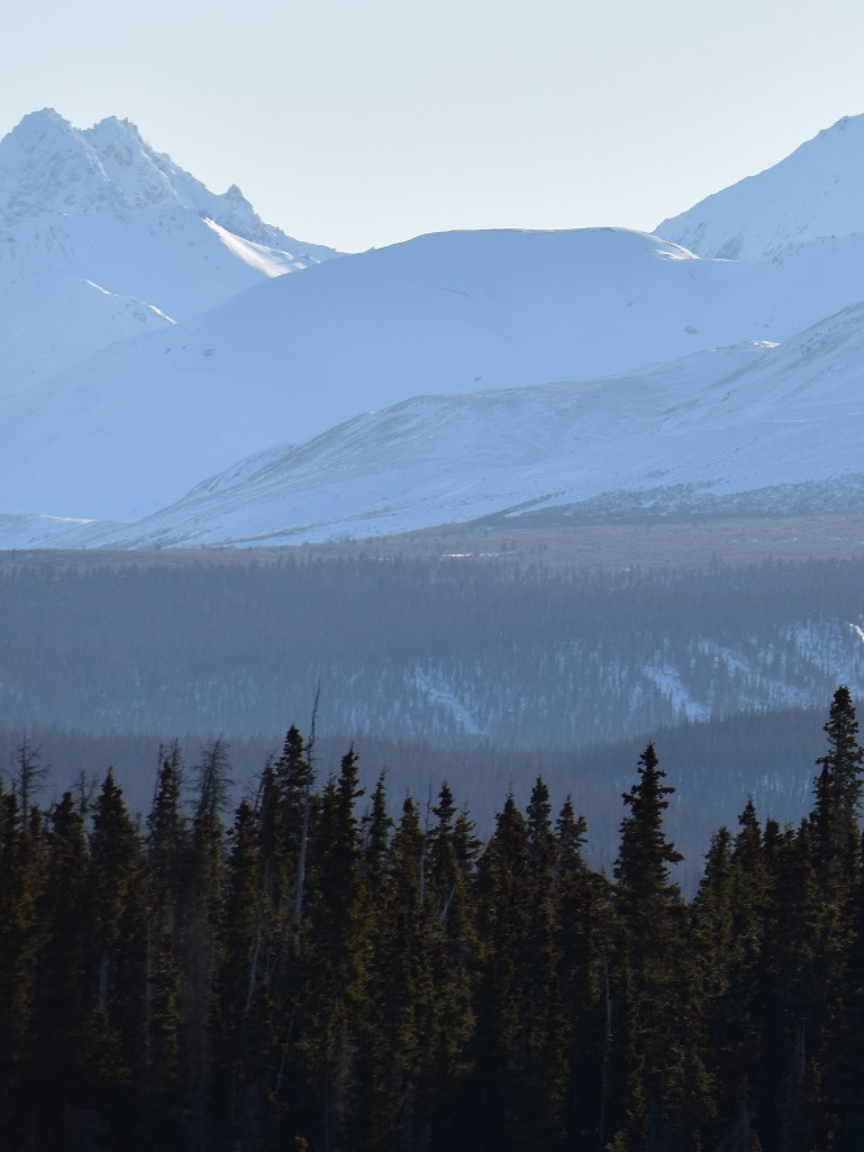What is a Major in Northern Systems?
Are you ready for a little adventure, and to learn on location? Take University of Alberta courses at Yukon University in Whitehorse to receive a degree in Northern Environmental and Conservation Sciences (ENCS) with a major in Northern Systems!
Study natural and social sciences in relation to issues such as wildlife conservation, land use, resource management under modern treaties, energy and global climate change. This program includes significant northern and Indigenous studies content, reflecting the local environmental, economic and social context. Students develop the knowledge and skills to understand environmental conditions and evaluate impacts on plants, soils, water quantity and quality, and animals. The structure and function of ecosystems are explored as students learn to plan, assess and implement conservation and restoration measures for natural and managed ecosystems.
Application Information
Start by contacting the Northern ENCS Program Coordinator at Yukon University (ualberta@yukonu.ca) to discuss if this unique program is for you, then apply for admission through the U of A. U of A application procedures, deadlines and fees apply.
“For effective conservation, I believe that there is more to be considered than the biological and ecological factors. Conservation should be an inclusive and collaborative process, expanding on both western science and traditional knowledge for the benefit of all wildlife, landscapes, and communities.” Read more...
- Undergraduate student Rachel Wiebe explored new perspectives, as well as the land and culture of the Yukon, during the REN R 465 Northern Exposures Field Course.

Featured Courses
Course available to students with an interest in acquiring a basic familiarity with Indigenous/non-Indigenous relationships, particularly in the lands now called Alberta and Canada. Consists of a survey of historical and contemporary relationships between Indigenous peoples and newcomers, with the aim of expanding the understandings held by many Canadians about these relationships.
An overview of evolutionary processes and their role in shaping animals and plants in northern environments; adaptations to extreme conditions and potential effects of climate change will be explored.
Current and projected impacts of climate change on the circumpolar north, including the land, its biota, northern communities and drivers that shape these interactions.
Contemporary approaches to land-use planning applied to northern systems in Canada, addressing the integration of social, environmental and economic values, and maintenance of ecosystem integrity through proactive measures.
Feature Careers
Indigenous liaisons help build and maintain positive and effective relationships between people of Indigenous (First Nations, Metis, and Inuit) cultures, people who are not Indigenous to Canada, and stakeholders who work for or are served by an organization that employs an Indigenous liaison. Average salary: $62,124
Conservation officers protect and manage natural resources and visitors in parks and on public lands. Are you passionate about protecting the environment? Do you have strong people skills? Do you love being outdoors? Do you deal effectively with difficult situations? Then you may find being a conservation officer is a natural career choice. Average salary: $74,795
Source: Government of Alberta, Occupations in Alberta
You may also
be interested in:
Programs related to a major in Northern Systems:
- BSc in Environmental & Conservation Sciences combined with Native Studies degree
- BA in Environmental Studies with a concentration in Environment and Peoples of Canada
